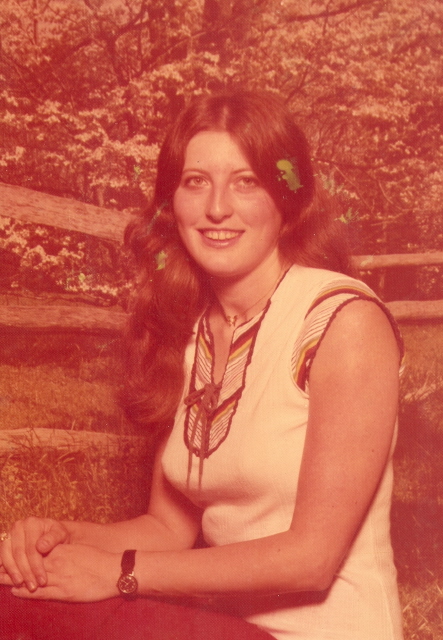TRANSCRIPTION
Can you describe your childhood for me?
It was a typical, middleclass, childhood. We moved around a lot because my father was in the military. And I had…four brothers and three sisters, so we were a large family.
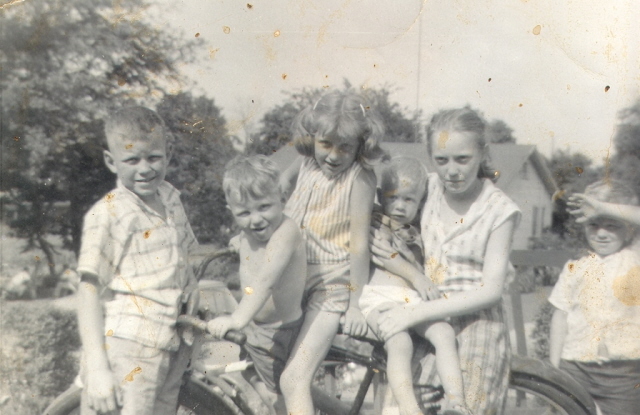 Describe your schooling.
Describe your schooling.
I went to….all the way through high school. Like I said though we moved around a lot so going to different schools, different systems use different methods of teaching so like in English I learned, one system was the phonetic systems and in another school they used the whole word learning. So I was able to get the best of both of these methods of reading, so I really love to read a lot.
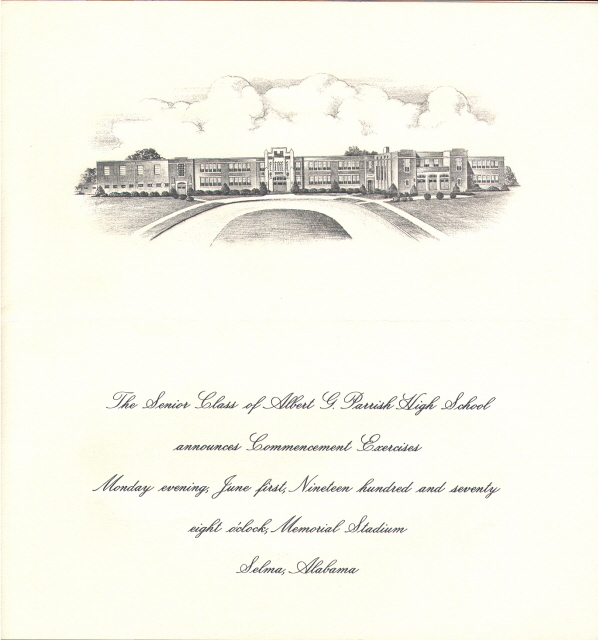 What did your parents do for a living?
What did your parents do for a living?
Well, my father was in the Navy and my mother worked at different jobs. One time she worked for the Mattel Toy Company, so we got the Mattel toys for Christmas because she got the discount. I had one of the original Barbie Dolls. And then when my dad retired from the Navy he worked as an electrician at the hospital and my mother worked starting as a Nurses Aid on the ward at the Mental Hospital.
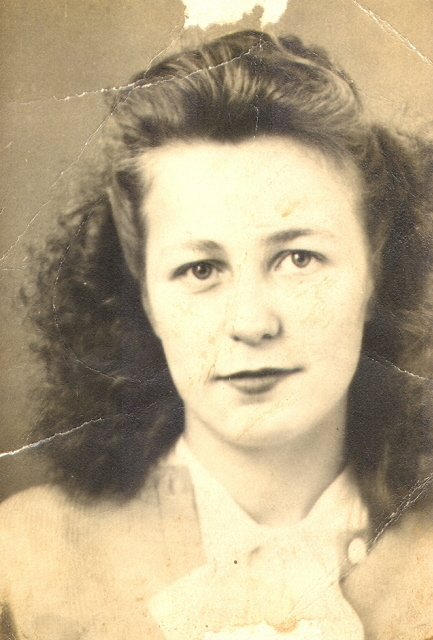
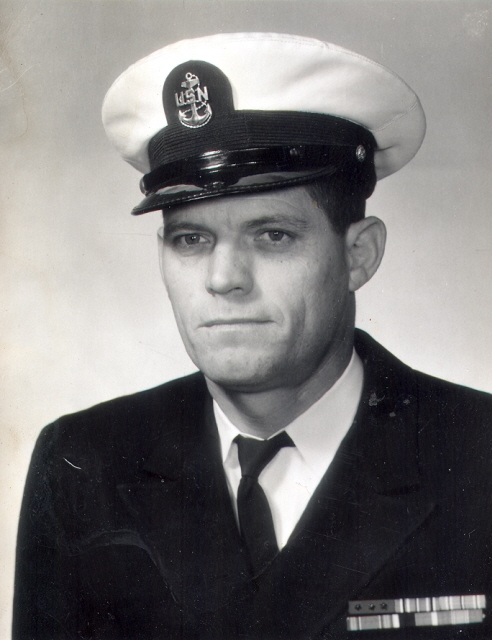
At what age did you began working?
I guess I was about 19 when I started working; I got a job as a biscuit maker at one of the fast food restaurants and from there I went on to be a cashier. And I've worked as a waitress, and I was actually a manager of a restaurant at one time - a pizza restaurant. I've had a different variety. And then I started as…working as a secretary and worked up as an office manager and now I work on the business side of our oil company business. But what I guess the most interesting job I had was the one I was going to talk about that was when I was a Telex operator.
What was it like when you moved to San Antonio?
Well I moved to San Antonio because…I guess I was tired of working in the restaurant business. And when you live in a university town…there's not a lot of opportunity for advancement and so when my brother was living here - he was in the Army, stationed at Fort Sam, so he was like, well come on out and there is a good job market out here. So I came out here to get a job.
You mentioned being a Telex operator- why did you decide to become a Telex operator?
Well I, when I moved here in the early 20's, when I was in my early 20's uh… that was the job that I was offered. I was looking for a secretarial position, but they needed a telex operator and so I took it. And it was a very interesting job, I'm glad I did.
Did you have to have any special training to be a Telex operator?
You needed to know how to type, and that was about the only real training that you had to do because the way the system worked, as you would type it, it would transfer the message and it would come up on another telex machine anywhere in the world. But basically what I would do is all day long people would have messages - we dealt a lot with England - and so with Lloyd's of London. And they would give me these messages, so all day I would go ahead and type them out and it would come out on a little ticker tape with all the holes punched in it. And so from there I would just save everything because you didn't want the long-distance charges, you didn't call a lot of times during the day. So at night, at the end of the day, I would just dial up their number and just run this whole ticker tape and it would send all the messages at one time through there. But once, when I was sending and in England someone was working late, over there because you know there's that seven hour time difference. And so somebody actually came on line and we chatted, typing to each other. Kind of like your modern IM messages. So that was, that was a lot of fun to talk to someone in England like that.
So you worked at Blades International is that correct?
Right.
How many Telex operators were there?
I was the only one, we only needed the one telex operator because like I said, what I would do is when I would come in, in the morning, they were almost through with their day and so they would have sent me all of this information and I would have this long ticker tape ready. And so I would run everything through and print it off and deliver it to the people it was meant for. And so that was another one of my responsibilities.
How many hours did you work a day/week?
I worked the full eight hour day, forty hour week; and I can't remember exactly what I made 'cause that was a long time ago, but it was, it was really decent money for the time.
Was the work challenging to you?
Not so much challenging, because you know it was just a lot of typing and that type of work. It was just interesting because one time, I- there was a big huge oil well fire and there was a message that said, "Call Red Adair" and Red Adair is actually a person well known for putting out oil well fires. But I thought it was just like some kind of code word you know, so there were a lot of interesting messages that I sent back and forth. Because Lloyd's of London is a big, huge insurance company and we would cover huge oil leases, multi-millionaires' homes, and things like that where it would actually divide it out so that no one had the full risk.
Do you think that working there and covering all those oil leases and stuff like that helps you do what you do today as a secretary for an oil company?
Not really. Because all we were dealing with was just the insurance coverage of it, it didn't have anything to do with the day-to-day production or you know how to drill an oil well or anything like that. I did learn a little about insurance though.
Describe the settings you worked in.
Well that was a large company and that was next to the Galleria in Houston. Mostly, I was just at the Telex machine and running errands around the company, and that's all about that job.
Describe a typical work day.
Like I said, I would come in the mornings and I would take the ticker tapes that England had sent to me, I would print them off, and deliver them to the different people in our company that they were meant for. And then as things came in during the day, I would type them up ready to send them that night. Occasionally, I would have to send them at that time if it was a really important thing, but usually I would just send them at the end of the day when I had everything all gathered up. And occasionally, if I ran out of things to do, I would go over and help the typing pool type up some of their backlog or something like that.
Why do you think the Telex became obsolete?
There was so, they developed so much more efficient technology. There's the fax machines, now you have the internet, you can just hit the send button and it'll come up on somebody else's computer, you just don't need the Telex machine any more.
About when did all this start happening?
I would say in the late 70's, it just became obsolete. I got out of that, that line of work so I really don't know when it became obsolete - it just evolved into more efficient communication systems
Is there anything that you miss about your job?
Not really because I've gone onto more challenging and interesting things. The people there were nice to work for but you move on to other employment and you meet other nice people.
Is there anything else that you'd like to add?
Not about that job. I've had a lot, you know like I said I've moved on and it was interesting for the time and I enjoyed it but I've moved on. Life moves on.
ANNOTATED BIBLIOGRAPHY
Tuscaloosa, Alabama This site contains about the population and economy of the city. It also contains a map that shows its location.
has information about the city as it is now. Published by Sperlings Best Places. Copyright © Fast Forward, Inc. Last Updated: 2007.
Civil Air Patrol The officail site of Civil Air Patrol, this site has information about the organization.
Copyright © 2007 Civil Air Patrol National Headquarters. All Rights Reserved. Last Updated: April 20, 2007
Mattel Toy Company This site is the official site of the Mattel Toy Company and has information about its toys.
Copyright © 2007 Mattel, Inc.
University Town The official site of Birmingham, Alabama; the university town discussed in this interview.
Copyright © 2007 City of Birmingham. Last Updated: April 20, 2007
Telex This site published by Wikipedia shows a picture of a telex machine similar to the one Diane operated.
Red Adair The Biography of Red Adair, the famous hellfigher.
Copyright © 1999 Adair Enterprises
Return to Oral History Projects
